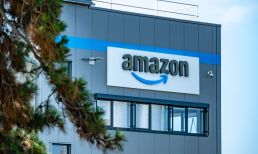The future of connected vehicles and home appliances includes over-the-air software updates, app stores and subscriptions. These devices will be updated like smartphones and enable consumers to purchase additional features.
Bosch announced Tuesday (Jan. 4) at CES that, as of the start of the new year, all its electronics products will be web-enabled. These include power tools, household appliances and heating systems.
“We are systematically digitalizing our core business to increase the benefits for our customers,” said Bosch Group Chief Digital Officer Tanja Rückert. “Going forward, we aim to turn the sale of every digital product into services-based revenue as well.”
Bosch is also incorporating artificial intelligence (AI) into its products. For example, it offers a refrigerator that can identify its contents and suggest recipes that would use them. The company also offers an AI-powered gas sensor that can “sniff” the air to detect a forest fire and then alert authorities.
The manufacturer also noted that while it already supplies advanced driver assistance systems and sensors to the automotive industry — $10 billion worth in the last five years — its subsidiary ETAS GmbH will also develop software, middleware and cloud services for vehicles.
Staying Continually up to Date
Advertisement: Scroll to Continue
We’d love to be your preferred source for news.
Please add us to your preferred sources list so our news, data and interviews show up in your feed. Thanks!
In a press conference on the same day, Qualcomm Technologies outlined similar plans for connectivity and business models for the global automakers to which it supplies technology. The company described the lineup of Snapdragon Digital Chassis options it offers, noting that these vehicle platforms are connected to the cloud, can be updated and create new opportunities for automakers.
“The Snapdragon Digital Chassis allows platforms to stay continually up-to-date with new capabilities after vehicle purchase, while allowing the automaker to create new features and services for enhanced customer engagement and services-based business models,” said Nakul Duggal, senior vice president and general manager of Automotive at Qualcomm Technologies.
Among the automakers that will be deploying Snapdragon Digital Chassis are BMW, General Motors, Hyundai and Volvo.
Transforming Automakers Into Software Developers
On the following morning, Wednesday (Jan. 5), Stellantis and Amazon issued a press release announcing they will collaborate on software solutions for Stellantis’ new digital cabin platform that is to debut in 2024. In addition, Amazon Web Services (AWS) will serve as the automaker’s preferred cloud provider for vehicle platforms.
The companies said the resulting products will include over-the-air software updates to the STLA SmartCockpit that is to be integrated into millions of Stellantis vehicles around the world. This platform is to include AI-enhanced applications for entertainment, voice assistance, navigation, vehicle maintenance, eCommerce marketplaces and payment services — all purpose-built for vehicles.
“By leveraging artificial intelligence and cloud solutions, we will transform our vehicles into personalized living spaces and enhance the overall customer experience, making our vehicles the most wanted, most captivating place to be, even when not driving,” Stellantis CEO Carlos Tavares said in the release.
Tavares had previously outlined Stellantis’ software strategy through 2030 during the company’s Software Day in December. With that announcement, Stellantis followed other automakers in outlining plans that will transition them from being manufacturers of mechanical products that are sold once to also being suppliers of software that is sold on a recurring basis.
Read more: Car OEMs Use Subscription Services to Boost Resale Value, Drive Personalization
In the press release issued Wednesday in advance of a press conference that is to be held at CES, Amazon CEO Andy Jassy added, “Together, we will create the foundation for Stellantis to transform from a traditional automaker into a global leader in software-driven development and engineering.”

 Add as Preferred Source
Add as Preferred Source



